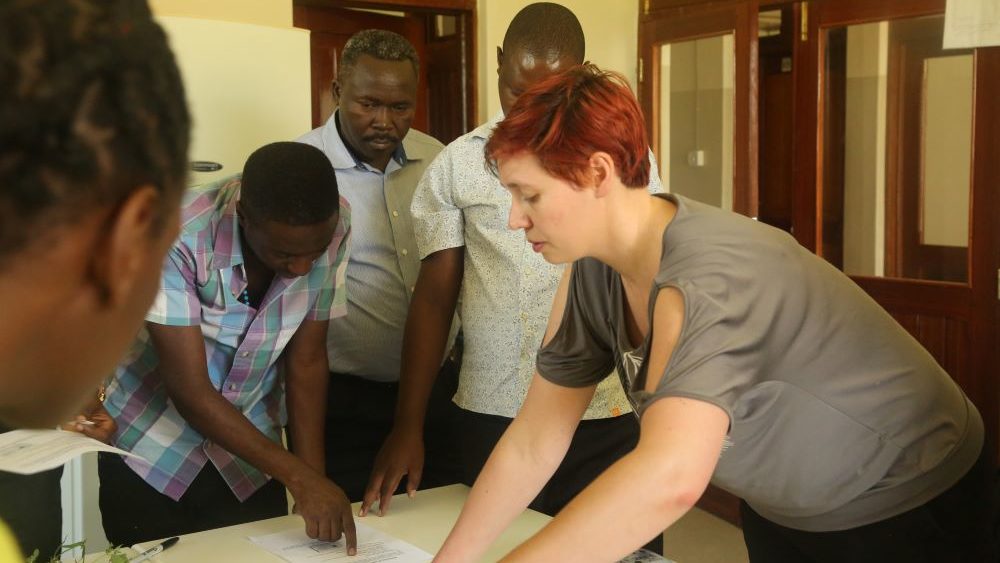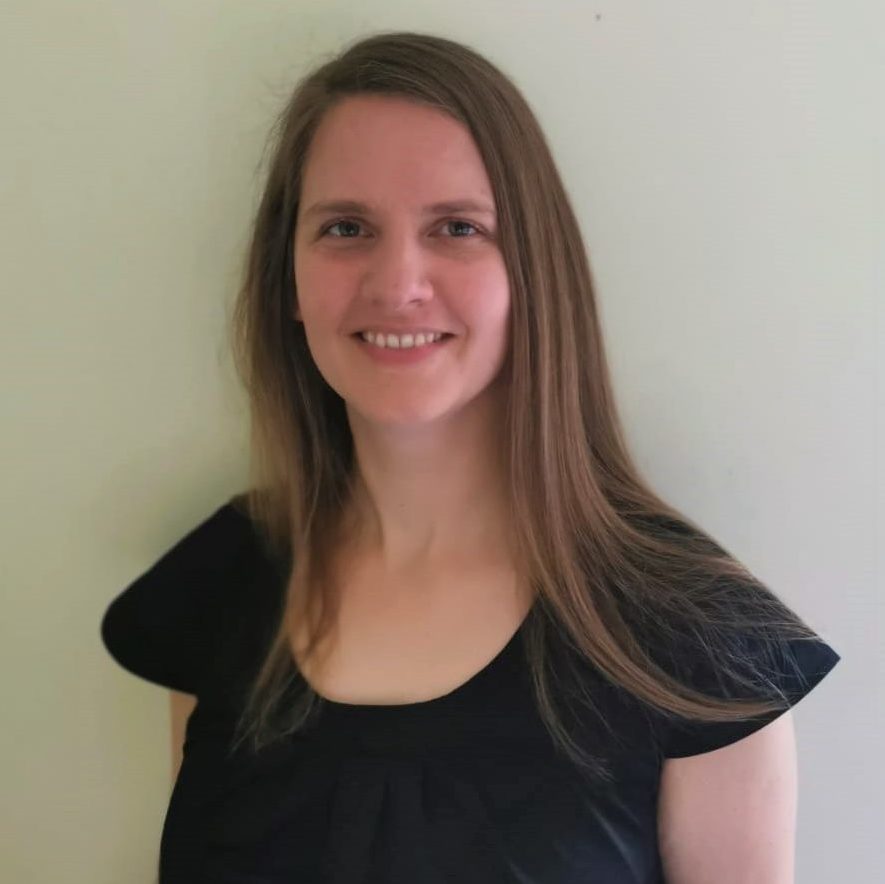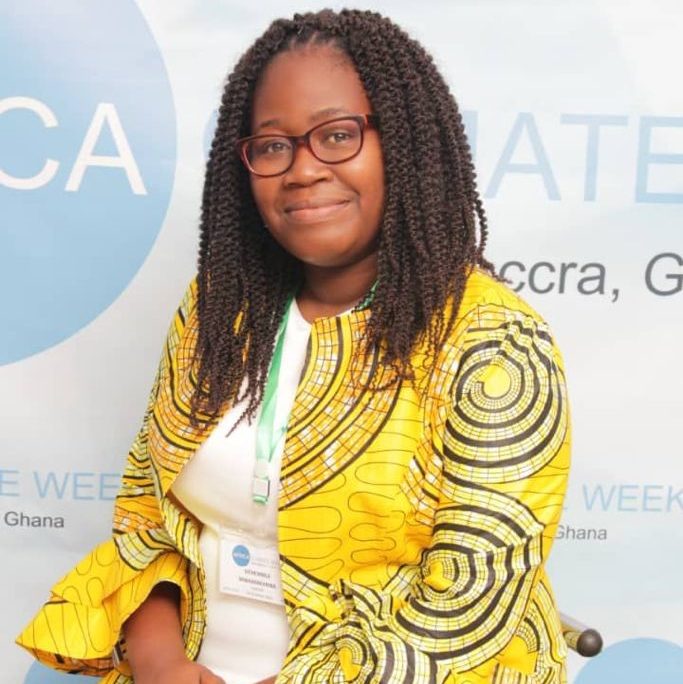By Sithembile Mwamakamba and Helen Coskeran
Africa’s agriculture and food systems face several critical challenges which include climate change and population growth. Designing and implementing interventions to achieve sustainable and inclusive food systems requires capacity at many levels.
AFRICAP funding comes from a Global Challenges Research Fund (GCRF) call focused on ‘growing research capability’. This pillar of our work is clear throughout, from launching individual fellowships, to increasing policymakers’ capacity to interpret and integrate academic evidence into their decision-making.
At the institutional level, there are improvements to be made across the board. For example, AFRICAP’s lead partner, the University of Leeds, has learned a great deal in terms of managing financial and contractual processes with overseas partners that will pave the way for smoother collaboration in future. Vital too, however, is extending this kind of legacy to partner organisations in the four AFRICAP focal countries to ensure they have developed their ability to design and implement multi-disciplinary programmes with large-scale budgets.
To us, it was important to ensure that this kind of legacy extended to partner organisations in the four AFRICAP focal countries. As a regional network operating across 17 countries through a system of partner organisations dubbed ‘node hosting institutions’, the Food, Agriculture and Natural Resources Policy Analysis Network (FANRPAN) – lead partner on AFRICAP – has ample experience in this area. In onboarding any new member organisation, FANRPAN applies a tool known as the Partner Institutional Viability Assessment – or PIVA.

PIVA: an overview
The PIVA tool was initially developed by USAID, to assess ‘organizational development capacity of regional African partner organizations in East and Southern Africa’1.
A PIVA-trained assessor spends time at the organisation in question using interviews and reviewing relevant documentation to assess six areas of competency: Governance and Leadership, Operations and Management Systems, Human Resources Development, Financial Management Systems, Programs and Service Delivery and External Relations and Advocacy. Sub-categories under each of these areas are given a score between 1 and 4 based on the extent to which they are operating effectively and sustainably. A final score out of 464 categories the organisation’s overall capacity as nascent, emerging, consolidating or viable.
The value for AFRICAP
In the first quarter of 2020, leading AFRICAP colleagues from four FANRPAN node hosting institutions – CISANET (Malawi), NAMC (South Africa), ESRF (Tanzania) and ACF (Zambia) – were trained on how to prepare for the assessments, and conduct the PIVA exercise in an efficient, objective and participatory manner. Afterwards, a member from each institution visited another country and over the course of one week, they assessed organisational capacity, assigning a score using the PIVA model. In a future post, the AFRICAP PIVA assessors will recount some of their experiences in conducting this exercise.
The results have already proven extremely valuable to us as programme managers:
- The matrix approach provides a standardised tool against which to benchmark organisations with different backgrounds, while also highlighting their individual strengths. Some organisations have made significant progress in particular areas since their original assessment when joining FANRPAN. Applying the same tool allows this progress to be captured clearly.
- The range of areas covered means we have identified themes in which particular partners would benefit from dedicated support and others in which we can offer cross-cutting activities that will be of benefit to all. This has included topics on strategy development, incorporating research fellows in NGO settings and understanding the funding landscape. To do this, we launched Food for Thought, an internal speaker series where colleagues share expertise and best practices with each other, building organisational capacity, strengthening relationships and internal knowledge transfer.
- The exercise has built capacities of AFRICAP team members to conduct institutional assessments on a regular and sustainable basis.
- This initiative has given us a robust blueprint to plan for and ensure legacy for AFRICAP partners following programme completion. This will keep us accountable in our aim to ensure organisations can go on to independently secure funding for similar grants in future.
The result of our activities to date has been a country-specific and programme-wide capacity-strengthening workplan which is being implemented between October 2020 and programme end. We look forward to this journey and to sharing more insights on the impact it creates.
About the Authors

Dr. Helen Coskeran is an international development professional with a background in project management in the non-profit and private sectors. She joined the university and the GCRF-AFRICAP team in August 2018. Within the programme, Helen oversees all monitoring and evaluation activities with the support of the M&E Working Group, and leads the programme’s capacity-building and knowledge-sharing theme. Find out more

Sithembile “Thembi” Mwamakamba coordinates FANRPAN’s climate smart agriculture policy research and advocacy projects. Her work focuses on enhancing the research-to-policy interface between climate change, smallholder agriculture and poverty reduction by addressing the specific needs of vulnerable groups in Africa, including women, youth and small-scale farmers. Find out more
